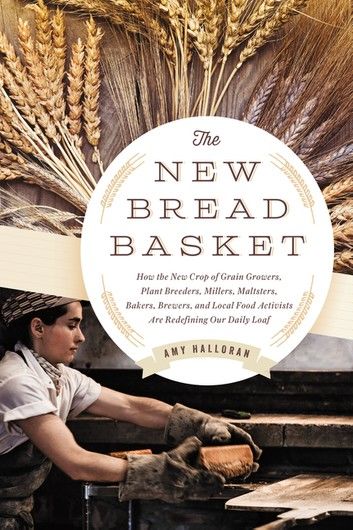| FindBook |
有 1 項符合
The New Bread Basket的圖書 |
 |
The New Bread Basket 作者:Amy Halloran 出版社:Chelsea Green Publishing 出版日期:2015-06-26 |
| 圖書館借閱 |
| 國家圖書館 | 全國圖書書目資訊網 | 國立公共資訊圖書館 | 電子書服務平台 | MetaCat 跨館整合查詢 |
| 臺北市立圖書館 | 新北市立圖書館 | 基隆市公共圖書館 | 桃園市立圖書館 | 新竹縣公共圖書館 |
| 苗栗縣立圖書館 | 臺中市立圖書館 | 彰化縣公共圖書館 | 南投縣文化局 | 雲林縣公共圖書館 |
| 嘉義縣圖書館 | 臺南市立圖書館 | 高雄市立圖書館 | 屏東縣公共圖書館 | 宜蘭縣公共圖書館 |
| 花蓮縣文化局 | 臺東縣文化處 |
|
|
For more than 10,000 years, grains have been the staples of Western civilization. The stored energy of grain allowed our ancestors to shift from nomadic hunting and gathering and build settled communities—even great cities. Though most bread now comes from factory bakeries, the symbolism of wheat and bread—amber waves of grain, the staff of life—still carries great meaning.
Today, bread and beer are once again building community as a new band of farmers, bakers, millers, and maltsters work to reinvent local grain systems. The New Bread Basket tells their stories and reveals the village that stands behind every loaf and every pint.
While eating locally grown crops like heirloom tomatoes has become almost a cliché, grains are late in arriving to local tables, because growing them requires a lot of land and equipment. Milling, malting, and marketing take both tools and cooperation. The New Bread Basket reveals the bones of that cooperation, profiling the seed breeders, agronomists, and grassroots food activists who are collaborating with farmers, millers, bakers, and other local producers.
Take Andrea and Christian Stanley, a couple who taught themselves the craft of malting and opened the first malthouse in New England in one hundred years. Outside Ithaca, New York, bread from a farmer-miller-baker partnership has become an emblem in the battle against shale gas fracking. And in the Pacific Northwest, people are shifting grain markets from commodity exports to regional feed, food, and alcohol production. Such pioneering grain projects give consumers an alternative to industrial bread and beer, and return their production to a scale that respects people, local communities, and the health of the environment.
Many Americans today avoid gluten and carbohydrates. Yet, our shared history with grains—from the village baker to Wonder Bread—suggests that modern changes in farming and processing could be the real reason that grains have become suspect in popular nutrition. The people profiled in The New Bread Basket are returning to traditional methods like long sourdough fermentations that might address the dietary ills attributed to wheat. Their work and lives make our foundational crops visible, and vital, again.
|










